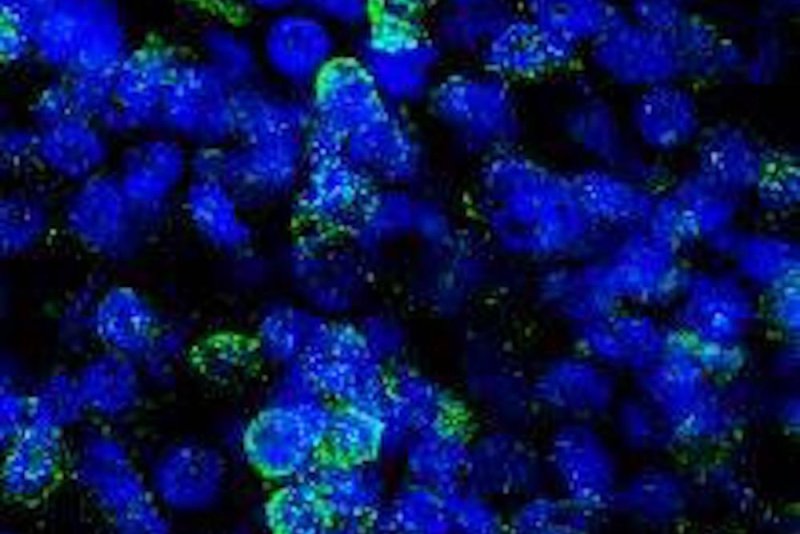An images shows activated DMT-responsive receptors among a culture of neural cells. Photo by D'Or Institute for Research and Education
Oct. 9 (UPI) -- Researchers in Brazil have used miniature human brains to reveal the effects of psychedelics on neural plasticity, inflammation and neurodegeneration. They shared the results of their experiments this week in the journal Scientific Reports.
"For the first time we could describe psychedelic related changes in the molecular functioning of human neural tissue," lead study author Stevens Rehen, a professor at the Federal University of Rio de Janeiro, said in a news release.
To study the impact of psychedelics on the brain, scientists exposed cerebral organoids -- cultures of neural cells that approximate a developing brain -- to dimethyltryptamine, or 5-MeO-DMT, a psychedelic compound. Mass spectrometry-based proteomics, a novel imaging technique, allowed researchers to analyze the compound's effects on thousands of neural proteins.
The analysis revealed an increase in the production of proteins related to synaptic formation and maintenance, as well as proteins linked with the regulation of learning and memory. The compound also decreased the production of proteins linked with inflammation, degeneration and brain lesions.
"Results suggest that classic psychedelics are powerful inducers of neuroplasticity, a tool of psychobiological transformation that we know very little about," said co-author Sidarta Ribeiro, director of the Brain Institute at the Federal University of Rio Grande do Norte.
Previous studies have suggested psychedelic drugs, including LSD and MDMA, have anti-inflammatory and antidepressant qualities, but until now, scientists have struggled to identify the molecular pathways through which the substances deliver their therapeutic effects.
"Our study reinforces the hidden clinical potential of substances that are under legal restrictions, but which deserve attention of medical and scientific communities," Rehen said.















